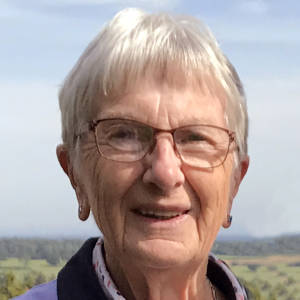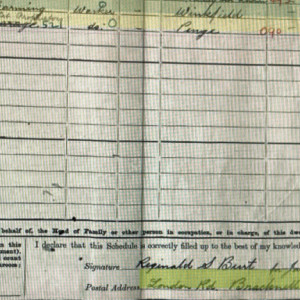Census night
August 10 was census night in Australia and today is the last day for getting your census form in. Censuses are used to help plan policy and services. But they are also a rich resource for family historians. They are one of my favourite family history documents.
In England censuses have been conducted every ten years since 1841 (except for 1941). The records that identify individual people are kept for one hundred years before they are released. The release of the 1921 English census has been delayed until 2022 and it will be an exciting day when it becomes accessible.
One of the interesting things about census records is the way they show how families have developed and changed over the decades. Children are born, they are ‘scholars’, they get a job, they move out of the family home. Heads of households become ‘widows’ or ‘widowers’, then disappear from the record. Census records can also reveal all sorts of unexpected extra details.
Take my maternal grandfather Reginald Stanley Burt. In the 1891 census he is living with his parents and his two older brothers. His father is a corn merchant. He is one year old and is said to have been born in 1890. (He wasn’t actually, he was born in 1889, but that is common in the census records where birth dates are extrapolated from ages, and ages are surprisingly often mis-recorded.)
In the 1901 census Reginald is eleven and his birth date is still wrong by a year. Those two older brothers are now aged 13 and 14 and they both have jobs, as an auctioneer’s clerk and a plumber’s mate. Reginald now has three younger siblings aged 9, 7 and 5.
By the 1911 census much has changed. The records themselves are different and more informative. Whereas the earlier records are enumerator’s books in which census collectors recorded the details from the original census forms, in 1911 for the first time the individual records were kept, so what we see is what our forebears actually wrote.
In 1911 Reginald is 21 and no longer living with his parents. He is a boarder with Mrs Jane Rance, a 70 year old widow. Mrs Rance is described as a boarding house keeper and also has a second boarder in her 5 room house, 68 year old Mr George Matthews, a farm labourer. Reginald has a job as a ‘cab clerk’.
The most interesting thing though is that Reginald filled in the form, and signed it, for Mrs Rance (extra). Perhaps she wasn’t comfortable with forms, or perhaps she couldn’t read or write. Whatever the reason, here among the official records is the form my grandfather filled in. It reminds me of things I had half forgotten about him. He was kind, and bossy, and he was a charmer. He particularly charmed ladies of a certain age. I bet Mrs Rance doted on him.


Comments
Sign in or get an account to comment.


